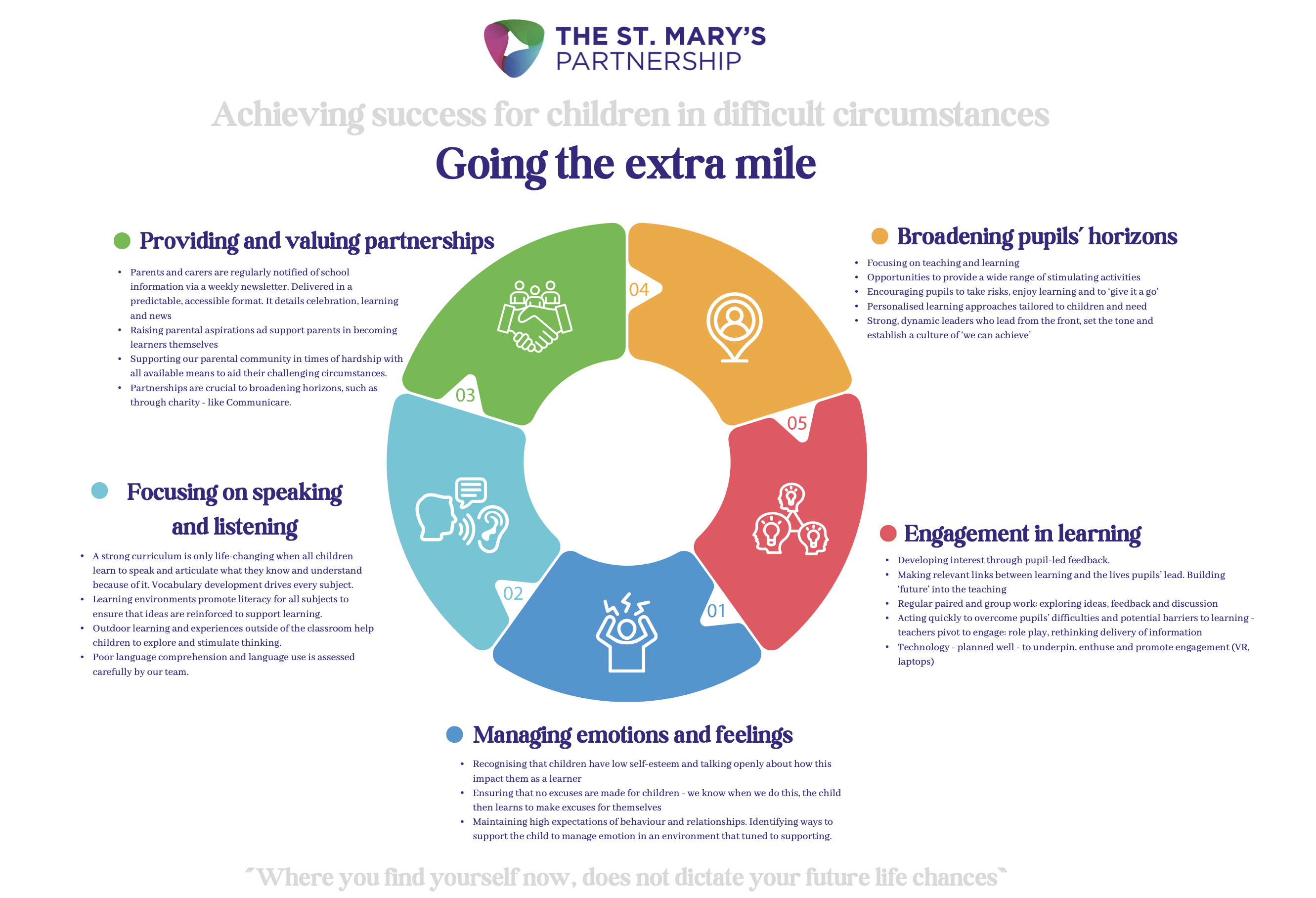PUPIL & SPORTS PREMIUM
EVERY CHILD, EVERY DAY, NO MATTER WHAT!

The partnership ensures that children from disadvantaged backgrounds are not held back by poverty and can make excellent progress through a comprehensive and research-driven approach. Key elements include:
-
Holistic Support for Emotional and Social Needs:
- Building children’s confidence and addressing low self-esteem by maintaining high expectations for behaviour and learning.
- Providing support for managing emotions and feelings in tailored environments conducive to learning.
-
Focused Teaching and Learning Strategies:
- Personalised learning approaches and targeted teaching therapies rather than interventions, enabling tailored support based on individual needs.
- Frequent assessment and analysis of data to pinpoint gaps and misconceptions, allowing for adjustments in teaching plans.
- Use of PiXL tools for diagnostic assessments, therapy, and summative testing to benchmark progress locally and nationally.
-
Curriculum and Vocabulary Development:
- A strong emphasis on vocabulary and oracy development across all subjects, recognising that language skills underpin success in other areas.
- Supporting literacy with a systematic approach to ensure consistent reinforcement across the curriculum.
-
Broadening Horizons and Reducing Barriers:
- Partnerships with charities and external organisations to provide enrichment activities and opportunities outside the classroom, broadening children’s experiences and stimulating their thinking.
- Raising aspirations by engaging parents and supporting them as learners, fostering a community ethos.
-
Data-Driven Decision Making:
- The use of structured frameworks, such as DTTR (Diagnosis, Therapy, Testing, Revisit), enables a precise and forensic approach to understanding and addressing learning gaps.
- Regularly tracking progress and implementing targeted interventions when required.
-
Practical Support in Early Education:
- Dedicated resources for early years to ensure language-rich environments and prevent gaps from developing.
- Systematic teaching of fundamental skills like multiplication facts, which are seen as non-negotiable.
These strategies are complemented by strong leadership, consistent evaluation of impact, and a shared commitment to equity across the partnership, ensuring that all children, regardless of background, are given the tools and opportunities to succeed.

